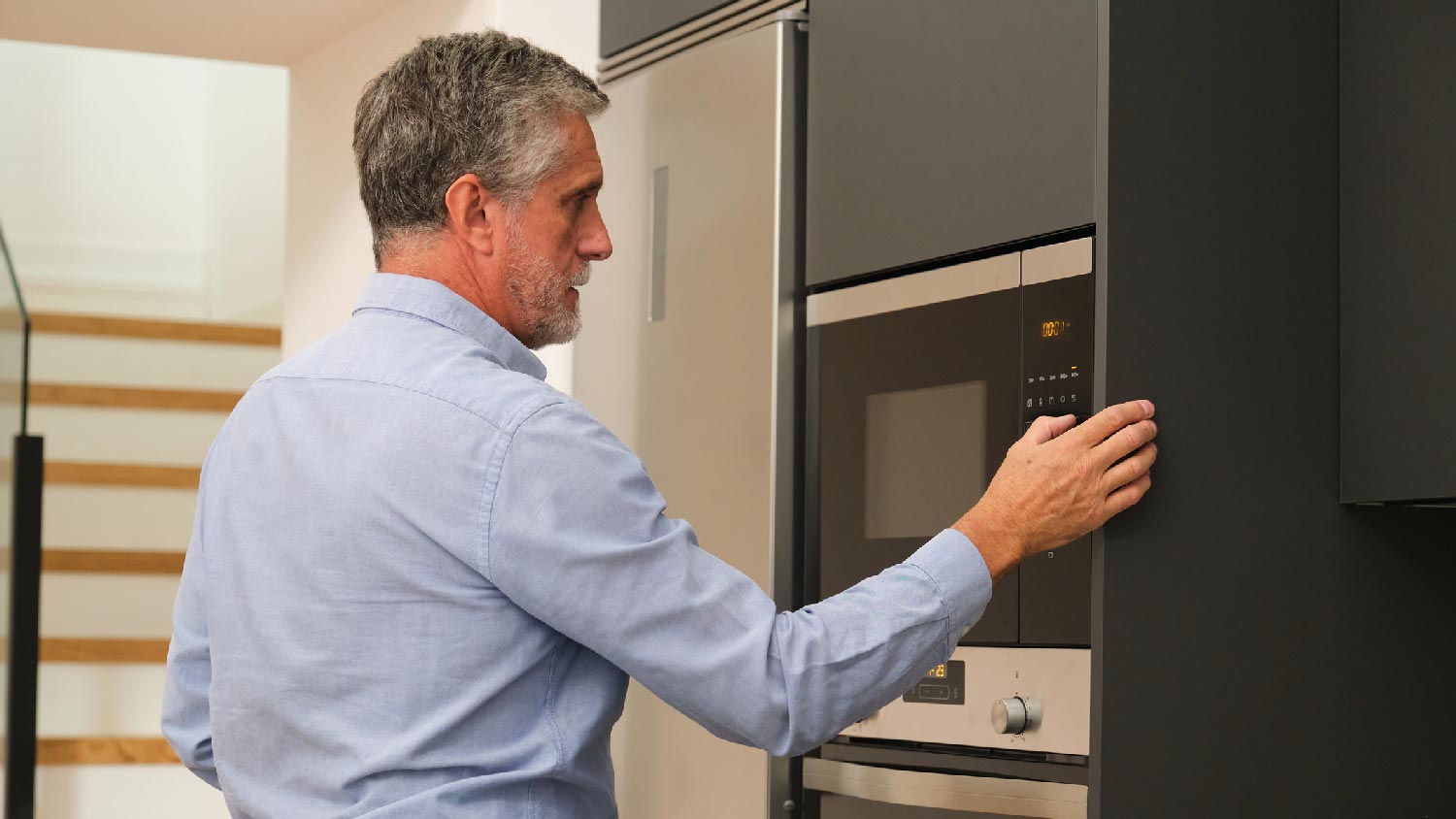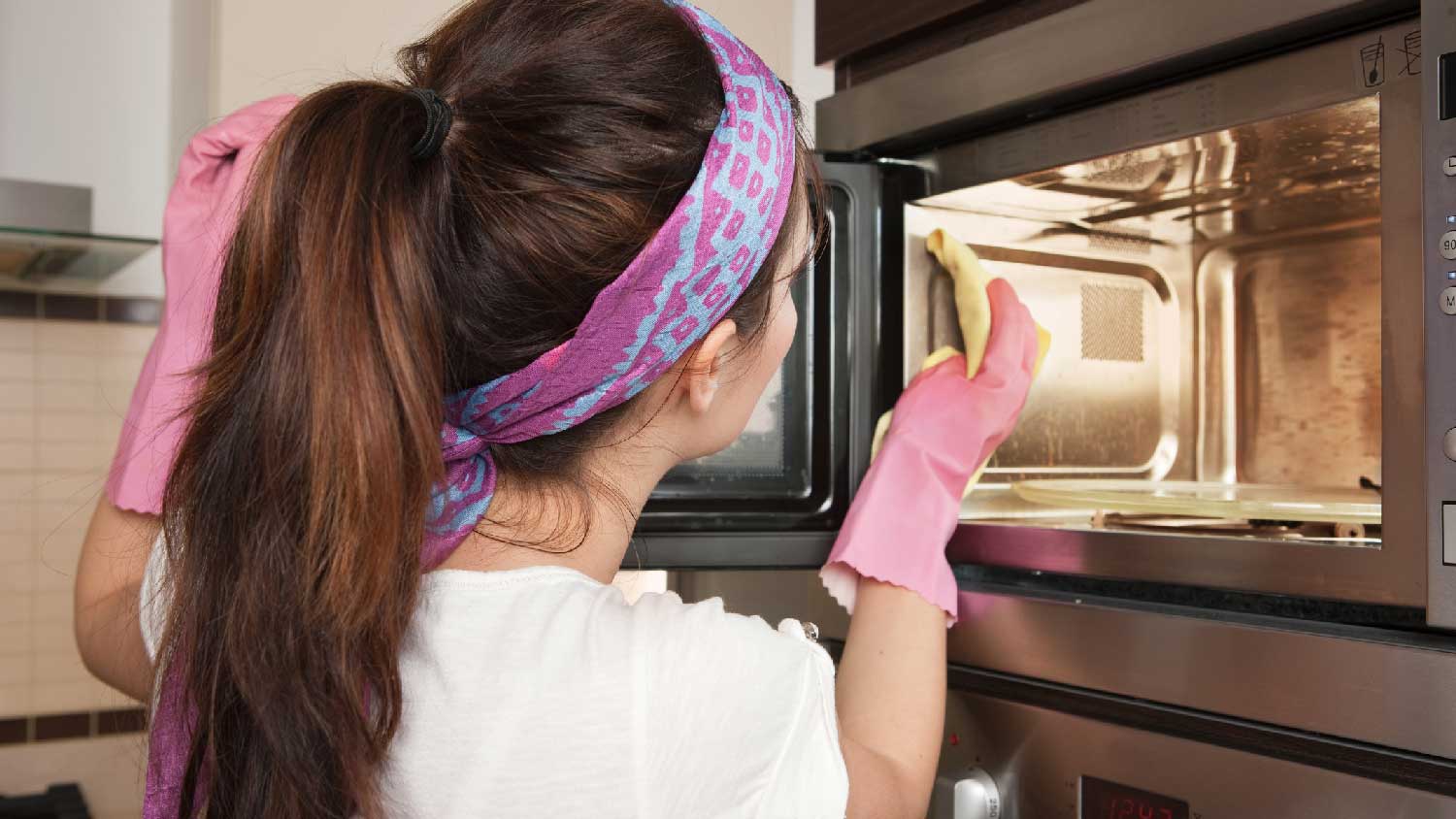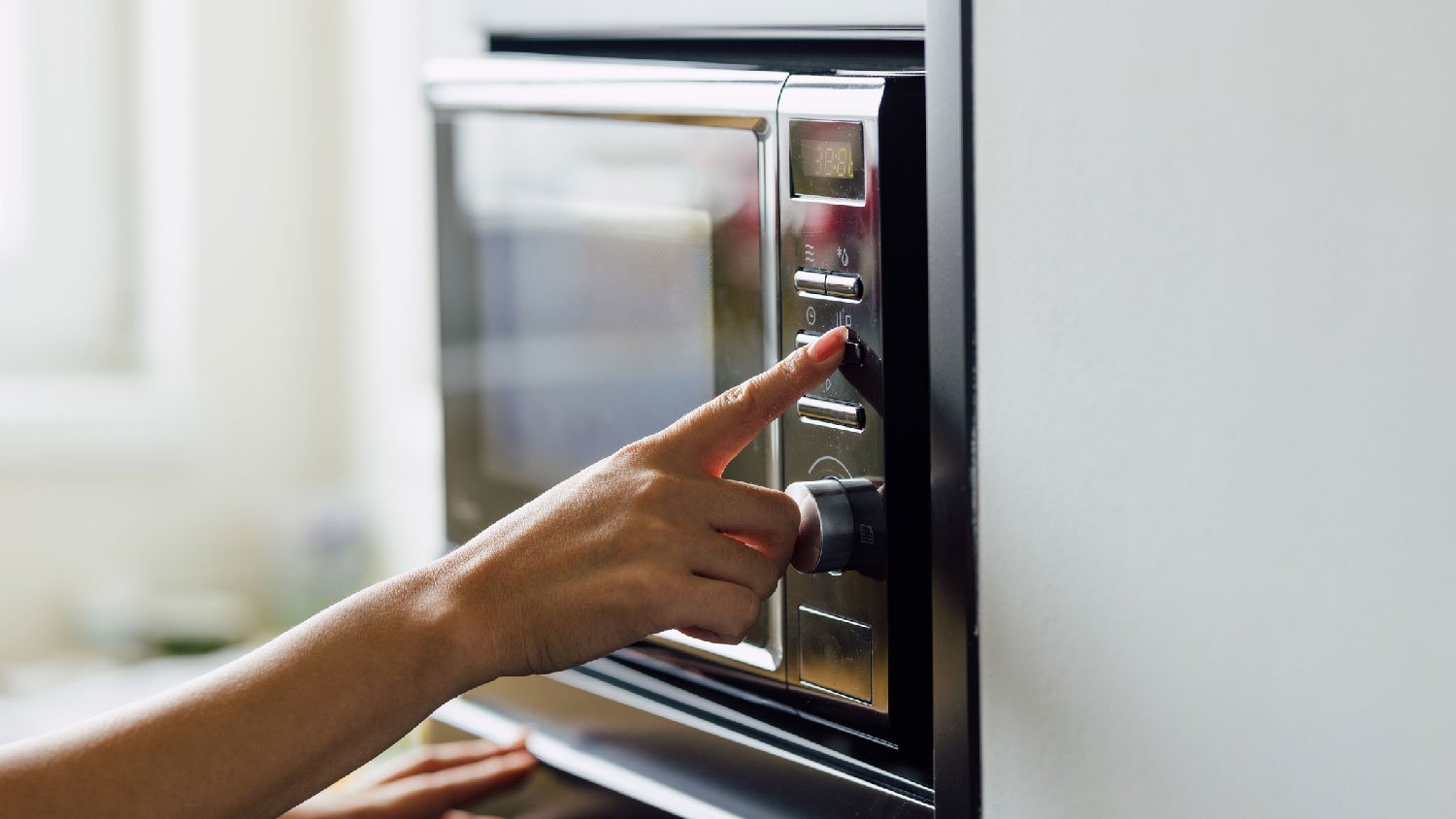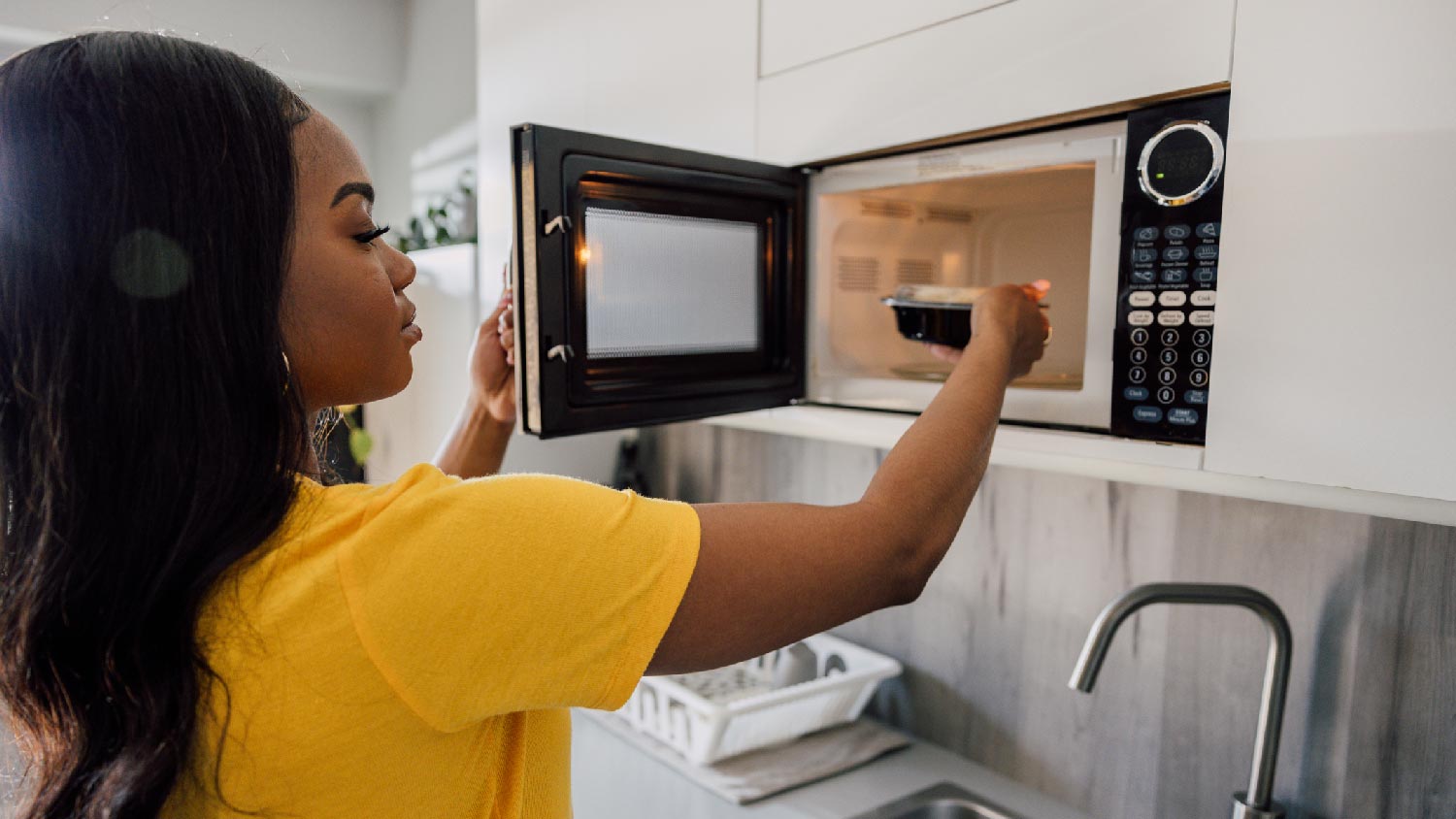Why Is My Microwave Smoking? 3 Potential Causes and Solutions
Smoke-free is the way to be


If there’s old food or grease inside your microwave, you may smell smoke when you use it again.
Overheating food or putting the wrong items inside a microwave can also lead to fires and smoke.
In some cases, electrical issues are to blame.
Keep your microwave clean and only put approved items in it.
It’s safest to hire an appliance repair professional for electrical problems.
Smelling smoke when you use your microwave is never a good sign—but fortunately, it’s not always a serious problem. In fact, you can often fix this issue just by cleaning your microwave. But before you start scrubbing, make sure you understand exactly why your microwave is smoking. Here are three common causes.
1. Leftover Food or Grease
When there’s old food, grease, or other debris inside your microwave, it could burn (and produce smoke) the next time you cook something in the microwave.
How to Fix It
When you smell smoke coming from your microwave, turn it off and unplug it immediately. If there’s a fire inside the microwave, keep the door closed for at least 15 minutes to let it burn out. Then, remove whatever you were heating up and thoroughly clean the inside of the microwave.
To prevent this from happening in the future, wipe any spills and remove leftover food particles when you finish using the microwave. You should also clean your microwave regularly. Check your user manual for your microwave’s specific cleaning instructions.
2. Improper Use

Just like metal utensils or aluminum foil can cause sparking in a microwave, using your microwave incorrectly can lead to smoking. For example, if you cook your food for too long or on too high of a power setting, it could start to smoke.
Putting certain items in the microwave can also create smoke. Paper bags, for example, may catch fire and start smoking when heated in a microwave. There are even some mineral-rich foods—such as kale and bell peppers—that can spark, set on fire, and produce smoke in the microwave.
How to Fix It
If you smell smoke or see fire in your microwave, unplug it, keep the door shut, and let the fire extinguish itself. After the fire goes out, wait at least 15 minutes before opening the door. Throw away the food you were cooking and clean the microwave thoroughly.
Before using your microwave again, read through your manufacturer’s guide to understand what you can (and can’t) put in it.
3. Electrical Issues
Let’s say you’ve cleaned your microwave and double-checked that you’re only putting approved food and containers in it—but it keeps smoking. If so, there could be an issue with one of the electrical components of the microwave.
How to Fix It
Unless you have prior experience working with electrical components, it’s best to leave this job to a professional. A small appliance repair pro can troubleshoot to figure out exactly what’s going on with your microwave—and let you know if it’s better to fix it or replace the entire unit.
When to Call a Pro
Some problems are easy to fix without a professional’s help. For example, if your microwave is smoking because there’s old food in it or because you overcooked your current meal, you can use the steps above to take charge of the situation—and prevent it from happening again.
However, if you think you have an electrical issue (or can’t figure out why your microwave is smoking), it’s better to call a professional who fixes microwaves. Repairing a microwave comes with the risk of electrocution (even if the appliance has been unplugged for hours), so this isn’t something you should attempt yourself.
Frequently Asked Questions
To get rid of the smoke smell in a microwave, scrape off any burnt food residue and throw it away. Next, warm a cup of water in a microwave-safe container for three minutes. Then, dip a microfiber cloth into a mixture of water and a couple of drops of dish soap and wipe down the inside of the microwave. Dry the inside of the microwave with a fresh cloth and let everything air out for three hours.
Typically, microwaves last between seven and 10 years. To keep yours running for as long as possible, it’s a good idea to clean up spills and crumbs immediately, clean or replace the filters as needed, and periodically inspect the power cord for signs of damage. You should also avoid running your microwave empty, which can damage your appliance and pose a fire risk.



- Window A/C Repair
- Microwave Repair
- Small Appliance Repair Services
- Garbage Disposal Repair
- Emergency Appliance Repair Companies
- GE Appliance Repair
- Samsung Appliance Repair
- Samsung Microwave Repair
- Whirlpool Repair
- Maytag Appliance Repair
- Kitchenaid Mixer Repair
- Kenmore Appliance Repair
- Kenmore Vacuum Repair
- Bosch Appliance Repair
- Kenmore Refrigerator Repair
- LG Appliance Repair Services
- GE Microwave Repair
- Electrolux Appliance Repair
- Electrolux Vacuum Repair










